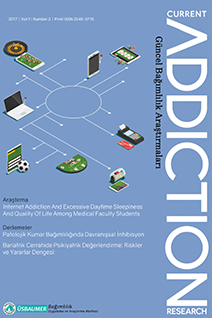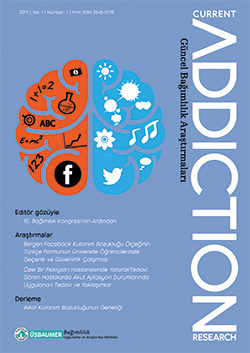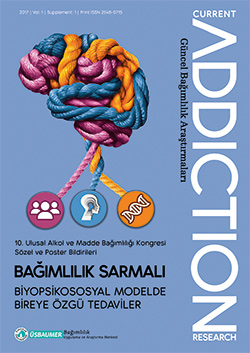ARTICLES
Original Article
Evaluation of Memory Functions of Alcohol Dependent Patients
Serdar Nurmedov
2018, 2(1), s:5-10
Long-term alcohol use causes varying degrees of deficit in various cognitive functions including learning, memory, visuospatial functions and abstraction. Studies using different techniques indicate that the neocortex, particularly the frontal lobe; limbic system and cerebellum are the brain regions most vulnerable to the toxic effects of alcohol.
The aim of this study is to assess the memory function in individuals with a history of alcohol dependency who meet the criteria for at least early partial remission and to compare it with healthy controls. The study also aims to investigate the association of memory function with duration of abstinence.
Twenty-four patients and 24 age, sex and education matched healthy controls were included in the study. Patients with Axis-I comorbidity, chronic neurological disease, dementia, chronic disease, Wernicke encephalopathy, Korsakoff syndrome and history of head trauma were excluded. The memory function of alcohol dependent individuals and healthy controls was assessed with Wechsler Memory Scale (WMS) and Rey Auditory- Verbal Learning Test (AVLT).
The memory subscales that show significant difference between the dependent and control groups are immediate memory span, total scores of learning trials and learning false score in AVLT and forward digit span, backward digit span, visual reproduction and memory quotient in WMS. Statistically significant difference was found in the long term recall score and long term false recognition score between the early and sustained full remission subgroups.
As a result of this study, dependent subjects are found to show more deficit in attention and memory functions compared to healthy controls. These findings are consistent with the literature on this subject.



 2. Sayı
2. Sayı
 1. Sayı
1. Sayı
 Ek Sayı
Ek Sayı







